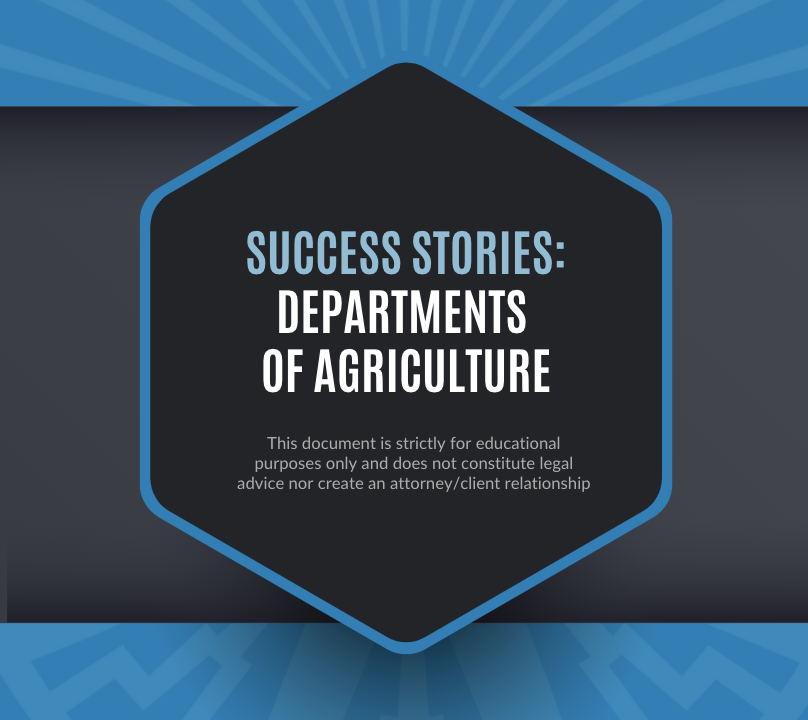This document is strictly for educational purposes only and does not constitute legal advice nor create an attorney/client relationship
Muscogee (Creek) Nation (“Mvskoke”)
Muscogee (Creek) Nation (“Mvskoke”) has a strong history of tribal agriculture including cattle operations brought from the homelands through removal and modern era agricultural extension partnerships. Existing agricultural programs in the Department of Interior Affairs were reorganized under a new Division of Agricultural and Natural Resources in 2016 pursuant to legislation.
The current Director of the Division, Trenton Kissee, oversees the following:
- Creek Nation farm and cattle ranch operations
- Agricultural Youth Development Program
- Fencing
- Wildlife
- Natural Resources Management
- Storm Shelter Program
- Looped Square Meat Processing Facility (currently under construction)
Kissee supervises 5 full time employees. The Division has also hosted college interns and youth workers through the Summer Youth Program. Additional farm labor is sourced through a staffing company held by the tribe’s business arm, Muscogee Nation Business Enterprises (MNBE).
Division programs interface with additional tribal programs that touch on components of agriculture, food and land management like Realty Land Services, Environmental Services, GIS and the Muscogee (Creek) Nation Conservation Commission which is an independent agency tasked with serving tribal citizens’ conservation needs.
The Division of Agriculture and Natural Resources is funded through grants, self-governance fund allocations, tribal fund allocations and enterprise revenue.
Under Muscogee (Creek) Nation Code, the agribusiness enterprises are to be revenue generating and thereby, self-sustaining.
This is an example of a codified goal of a tribal agricultural program. Through these different sources of funding, Kissee and his team are able to achieve their goal of growth and expand the knowledge of agriculture tribal members and youth. For example, the Division was able to send students to Washington D.C. in the summer of 2019 to learn more about agriculture and its role in government in Indian Country after receiving a grant. The Division has also increased its outreach. Through the Ag Youth Development Program, an All-Indian Livestock Show is hosted annually. Shooting sport offerings have been added to youth programming in addition to support for 4H and FFA competitions. The ranch also has begun hosting an “Open House” for elected officials and staff to view facilities and operation improvements, take a tour of the grounds and share a meal with Division staff.
Menominee Indian Tribe of Wisconsin (Kaeyas Mamaceqtawak)
In 2018, the Menominee Indian Tribe of Wisconsin (Kaeyas Mamaceqtawak) created the Menominee Department of Agriculture and Food Systems, directed by Mr. Gary Besaw. The department works closely with the tribal administration, planner, and grant writer, to seek grant funding offered by a variety of organizations. Menominee currently has a 5-year grant with the University of Wisconsin to create a renewed and culturally vibrant healthy food system.
The tribe has experienced community health challenges, and in order address nutrition-related health issues Menominee has implemented a Food Distribution Program under the department. The program offers:
- Healthy Food
- Food Education
- Training
The department also seeks to diversify operations on leased lands by pursuing policy changes that would allow:
- bee hives, chicken coops and gardens;
- build a larger commercial kitchen for tribal citizen access and economic benefit;
- and merge traditional and modern practices to further support improved access to nutritious foods and health equity.
Future goals include creating training and infrastructure for non-native agriculturists to allow better communication between the tribe and external partners; it is important for people and organizations working with Menominee “to learn values, language, customs” of the tribe like prioritizing health over economic interests.
Additional department goals include working to write policy and develop legal infrastructure, pursue the creation of a tribal land grant college, and ensuring Menominee’s interests are represented regarding issues for the next iteration of the Farm Bill. Ultimately, Menominee hopes to push USDA and Congress to receive the same treatment that states or territories receive for funding agricultural endeavors and legal issues. Mr. Besaw strongly recommends that other tribes look into forming their own Department of Agricultural and Food Services, stating that “there are a lot of resources and tribes willing to help.”
Food is medicine
Gary Besaw expresses the intent behind the program: “Food is medicine.” Mr. Besaw also reflects that agriculture and food systems management shouldn’t be a top-down approach, as the land belongs to all 9,000 Menominee members who should have input and responsibility.

